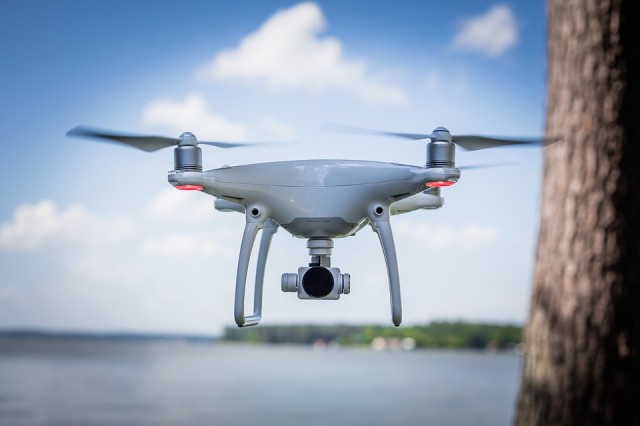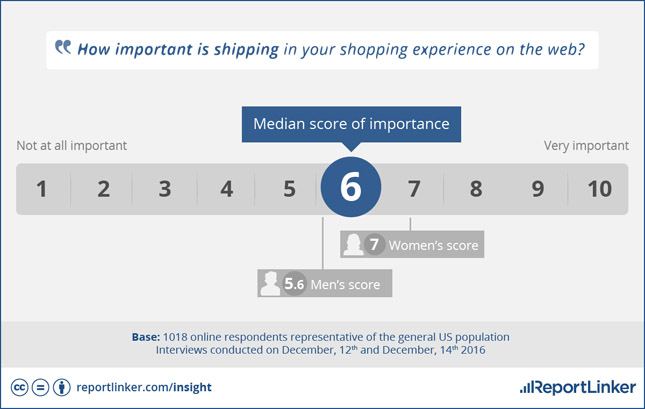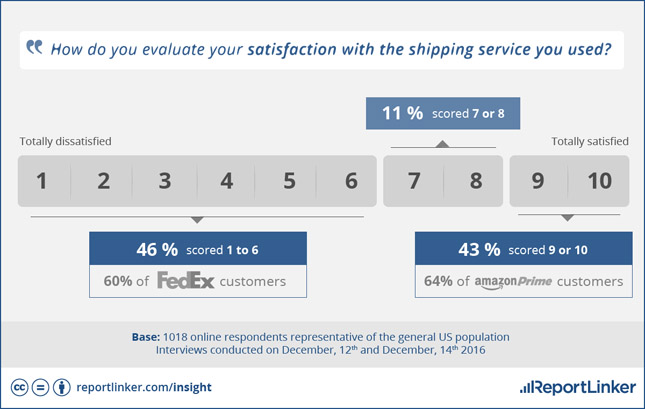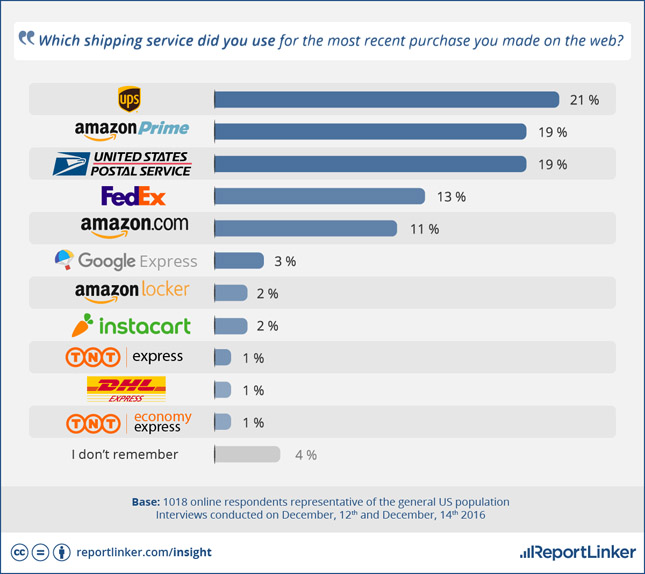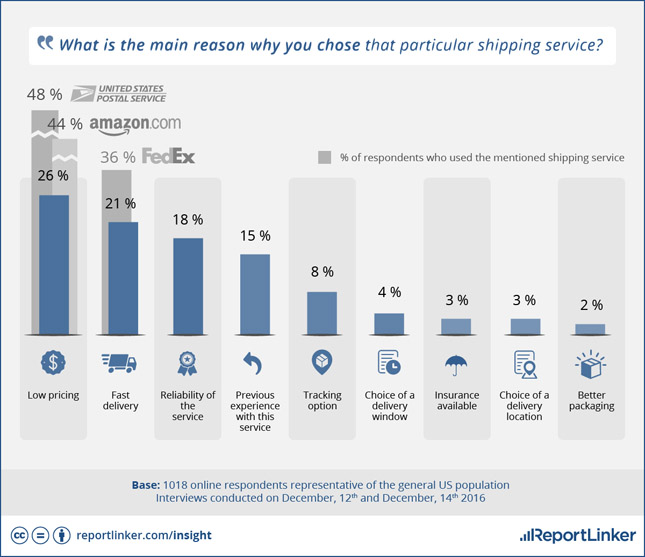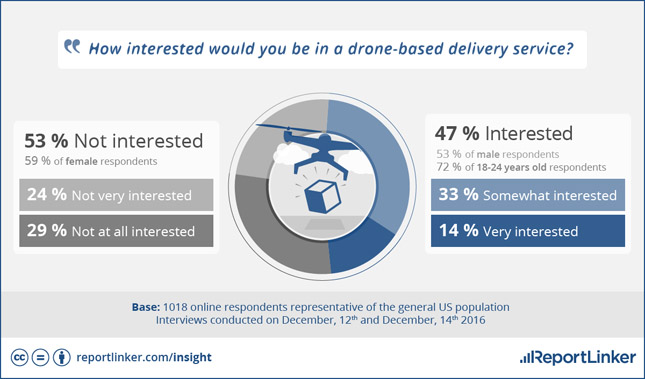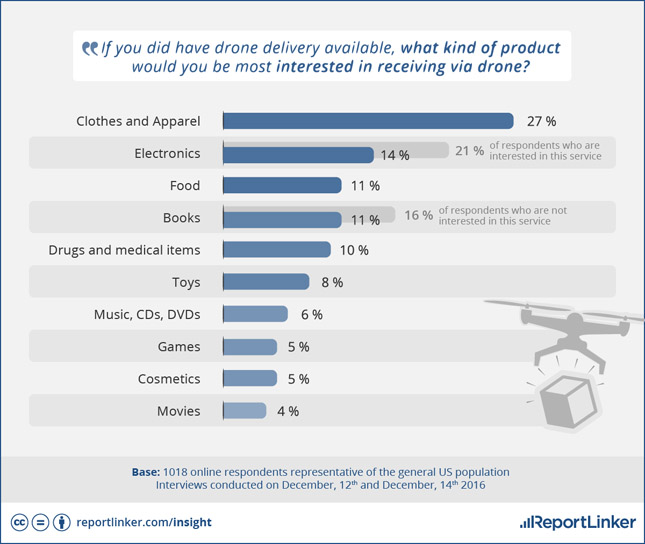The idea of drones, at one time, was much scarier than it has become. Drones have been implicated in military activities as well as in the movies where the conspiratory ideas of drones being the “eyes in the sky” that were spying in the people and violating their privacy. This image is making a sharp turn-around as drones become the new remote-controlled cars. They are now Christmas gifts for the desiring teenager or middle-aged man and have since become known in the logistics world as a method of delivering packages. Will America accept drones at their front door?
The basis for using drones as a package delivery option begins with how important shipping and delivery is to Americans when shopping online. A recent ReportLinker survey showed that the median level of importance of shipping when purchasing online is a 6 on a scale of 1 to 10. Women tended to me more particular about their shipping and rated higher (7) than men (5.6).
When shopping online, most reported using UPS (21%) most recently followed by Amazon Prime (19%) and the United States Postal Service-USPS (19%). The products they tended to ship were apparel and electronics. Eighty-five (85%) of online shoppers ship their purchases to their home with cost (26%) and speed (21%) being the top factors when choosing a shipping option. USPS and AmazonPrime were the most likely options for those who cost was the main factor. FedEx was chosen when speed was the main factor in choosing shipping options. Among the least concerns were type of packaging, insurance, tracking and choice of delivery location.
Respondents were asked to rate their satisfaction (on a scale of 1 to 10) with the shipping provider they used most recently. Overall, 43% of respondents rated their shipper and 9 or 10. However, 46% rated their most recent shipper between 1 and 6. Of those that rated their shipper highly, 64% were AmazonPrime customers. Among those that were most dissatisfied with their most recent shipper, 60% were FedEx customers. Most purchasers were dissatisfied with their shipping that may leave open an avenue for other options.
It is apparent that shipping is a large part of the lives of online shoppers especially as online shopping begins to overtake brick-and-mortar, retail sales. When respondents were asked about their interest in drone-base delivery 53% were not interested and only 47% were interested. Of those who were not interested, 59% were females. For those who were interested, 53% were male. However, when asked about the types of products they would ship by drone, most (27%) responded clothes and apparel followed by electronics (14%), food (11%), drugs and medical items (10%).
It is apparent that shoppers may not yet be comfortable with shipping sensitive or fragile products as of yet. They may want to test the service with clothing and apparel that are least likely to be damaged upon shipping. Though women were reported more likely to ship apparel and men more likely to ship electronics, the drone-based delivery market may be more appealing for those men who choose to ship less fragile products such as clothes and, possibly, smaller electronics.
Shipping companies who are testing the drone-delivery service has more work to do in marketing the safety, reliability and cost of this service. Specific marketing techniques should target women who tend to be the largest online purchasers.
Find a Home-Based Business to Start-Up >>> Hundreds of Business Listings.











































